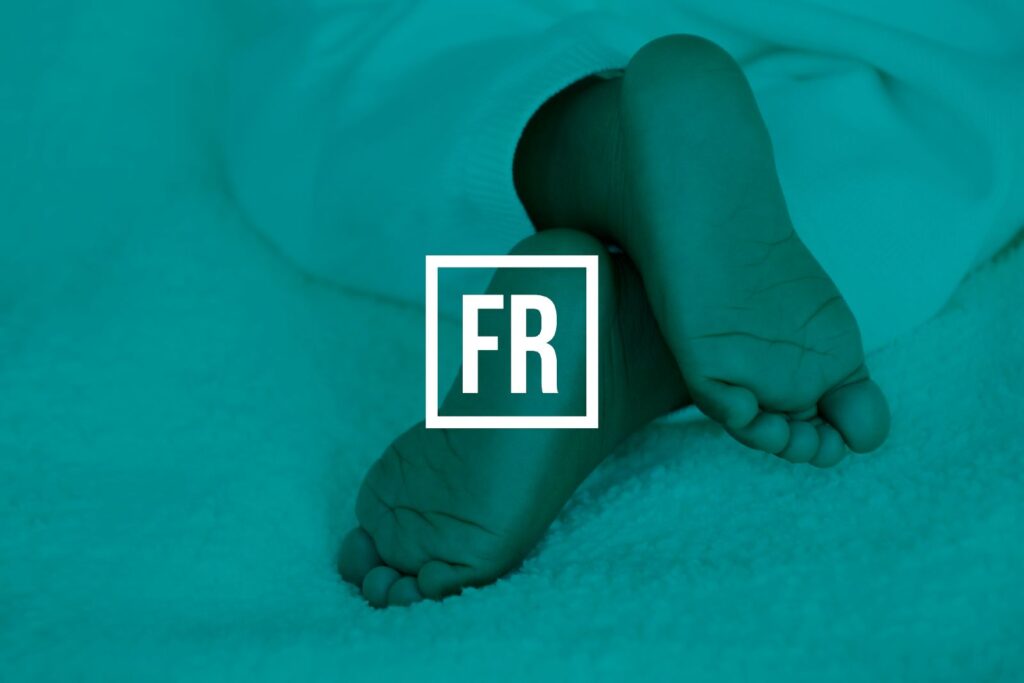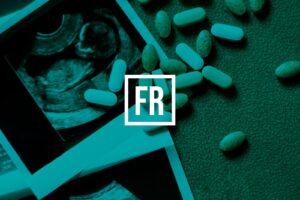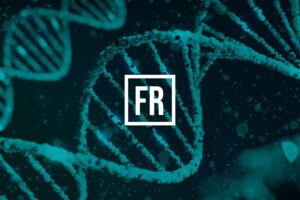Your pathway to parenthood with egg donation may seem quite straightforward in a practical way, the eggs are collected from a young, healthy donor, fertilized with the sperm of your choice and the resulting embryo transferred when the conditions are optimal to give a pregnancy the best chance of success; but here we will consider the emotional stages of your journey too, encouraging you to understand the potential highs and lows, accepting both as your plans move forward.
When do people tend to consider egg donation?
Egg donation for females, individually or those in a relationship, might be suggested at the end of a long fertility journey or after initial fertility tests show a low chance of success with a patient’s own egg treatment. The patient’s initial response can often be shock. Disbelief at the suggestion of using someone else’s egg, and sometimes at the other end of the spectrum, relief, knowing you will have a better chance of success and not need to go through stimulation and egg collection yourself. There are no rights or wrongs, it’s just about how you feel.
In my experience as a fertility counsellor, it can take time to feel comfortable with the concept of donor conception, especially if you are in a relationship as you may both process the decision in different ways, and over different lengths of time.
I was so very ready to go down the donor route, my husband was confused as he thought I’d be devastated that it wasn’t my egg. He hadn’t had the firsthand experience of the hormones, the physical sense of loss when treatment hadn’t worked, the hideous period after another loss. I was very ready to move on. In counselling it became apparent that he had only just started to accept it wasn’t going to work with my eggs. We needed time so he could play catch up.
Rose, embracing UK egg donation treatment.
Once the decision has been made to embrace donor conception the first question asked is often where in the world to have treatment? Which country, which clinic, which donor…
The regulatory framework around donor conception differs around the world, there is a growing global trend towards the ethos used in the UK, around openness and transparency, very much driven by donor conceived people. But wherever you go, whichever clinic you attend, one thing is common – the donor will have wanted to donate.
What motivates women to donate their eggs?
There may be different reasons why people donate their eggs to help others who wish to try and conceive, but awareness of the importance of family and a desire to want to help are commonplace and essential in the UK where donors are compensated for altruistic donation, rather than there being a significant financial incentive.
Not all women who want to donate their eggs are able to do so. Family history is explored, genetic tests performed, and fertility tests undertaken to ensure the potential for a successful outcome. Clinics would not put a person through ovarian stimulation if there was not a good chance of success suggested by the initial tests. Each clinic will have their own criteria around donor recruitment, and questions are routinely welcomed, often helping to promote your emotional comfort in the process ahead of treatment.
I felt like I was being difficult wanting to know how they recruited donors and why the clinic had suggested a particular donor. On paper it didn’t sound right, but by explaining their thought processes around what I’d shared about me and why they thought the match was right, it reinforced why I chose the clinic in the first place.
Roberta, egg donation in Greece
Donors have to be aware of the rights for offspring in many countries to be able to access their identifying information as adults, the impact this may have on them, their wider families including their own children is explored ahead of treatment being planned. In the UK and for people conceiving with eggs imported from overseas, the donors are able to find out the gender and year of birth of children born from the eggs donated; this can be so useful for them, but also for their own children too.
Emotional support is equally important for both egg recipient and egg donor
Research undertaken by the Morgan Centre for Research into Everyday Lives, University of Manchester, has confirmed how much more wide-spread the impact of donating gametes can be felt; wondering about offspring isn’t a bad thing, it’s just something donors and their families may do when they are curious. Counselling is a routine part of the pathway for donors, providing a space to consider that the genetic connection can be felt in different ways for different people, not just parents, donors and offspring. Being an egg or sperm donor – School of Social Sciences – The University of Manchester
I was so pleased I could donate my eggs. An advert popped up on my social media and it made me think about what a waste it was each month when my eggs weren’t being used; more so now my family is complete. The counsellor suggested I talk about my donation with my children from a young age, I did think that was a bit odd, but the books for children from the Donor Conception Network really helped make sense of it, for my children – and my wider family to, especially my Grandad, he thought it was amazing.
Jo, egg donor UK
The Donor Conception Network have a wide range of resources for parents through donor conception and a dedicated selection of books for donors too to share with their own children: Books for donors | Donor Conception Network (dcnetwork.org)
Donors able to donate can feel really positive about the potential to create a new life, but they may have a moment of uncertainty or curiosity and then, just as support is available for patients, donors may continue to access support after treatment too. Thoughts and feelings can change where children are born, or not. Informed consent provides a moment in time to reflect back on, evidencing that at the time of conception a donor was very comfortable with their decisions and had progressed with awareness of the implications, and of support being there for them.
For people trying to conceive it can be surprising if once treatment becomes a reality, they grieve the loss of the fantasy about how they’d hoped to conceive. This in itself can trigger other losses they have experienced, or difficult times they have lived through. The grief process can also heighten the awareness of other emotions once the shock subsides. Shame and embarrassment can be in the mix, along with anger and a sense of failing. We know, our conscious self knows, we have not done anything wrong, but often we need a focus to vent our frustration, and sadly often we turn the criticism to ourselves.
Self-care is key. If we try to constantly think positively and remain optimistic we can set ourselves up to fail. Being real is so important, especially when you are choosing your donor.
For a moment I wanted to run away and forget it, but I had a known sperm donor and there was just the egg donor selection to be able to move forwards, I had to find the one, in the end I’d got a choice of two, one liked candy floss, that did it for me, it’s my absolute favorite comfort food.
Paulette, embracing solo motherhood, UK
How to select your egg donor
When selecting your donor, there may or may not be an obvious choice of a donor. If there is it can be a little more straightforward, but it need not be complicated. Clinics routinely suggest a very basic approach to donor selection: start with physical characteristics and use the other information to short list.
When people are struggling to make a donor selection I suggest working backwards: thinking of the adult conceived from the treatment, and the narrative parents will share in the future about their decision. Physical characteristics and a good familial fit enable a parent, when asked why they chose their donor, to reply ‘they were a good fit for the family and…’ The ‘and’ being whatever makes the selected donor appear ‘good enough’ to move to the next step. For Paulette (quoted above) it was the candy floss connection that made her smile, and made the decision feel right for her too.
Single men and male couples embracing egg donation and surrogacy as part of their pathway to parenthood can also experience a wide range of emotions, from a purely practical straightforward decision, to a recognition that however impossible, life would be so much easier if they could just make a baby without the need for assistance.
The decision to have treatment, where to have it, donor selection and when to start, may all only feel 51% right at the time. 49% wondering what if… would a different clinic be better, will a better match of donor be available next week… next month… next year? In my opinion, 49% ‘what if’s’ is good enough to move forwards, reinforcing that no clinic, no matter how good, can guarantee a successful cycle outcome. You don’t need to feel 100% certain – life is rarely that straightforward.
The emotional rollercoaster of taking the egg donor route to parenthood contains highs – you want to create a new life, and lows – there may not be a new life. The experience strikes at our most basic primal desires. However, having an appreciation for the potential emotional stages equips you to face the journey feeling empowered.
Whatever stage of your egg donation journey you are at please remember:
- There may always be a little uncertainty, that is OK
- It can routinely be stressful, that too is OK, embrace the stress, manage it well.
- Specialist support is available
In the UK you can find a specialist fertility counsellor via the British Infertility Counselling Association www.bica.net
The International Infertility Counselling Organisation can be found at https://www.iico-infertilitycounseling.org/ which lists specialist counselling organisations around the world.
You can also reach me, Tracey Sainsbury at: www.fertilitycounselling.co.uk






